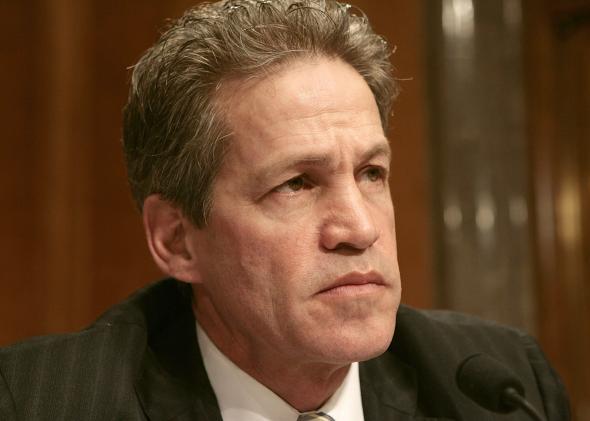After months of speculation and delay, the Senate has scheduled a Monday evening vote on the Employment Nondiscrimination Act, known as ENDA, which prohibits job discrimination based on sexual orientation or gender identity. Seventeen years after a crushingly narrow defeat, ENDA will likely garner the 60 votes necessary to move on to the House. The primary question now is whether the current bill is even worth passing.
No version of ENDA has been perfect. In its 2007 iteration, the bill tossed out transgender protections, leading to some truly idiotic in-fighting among gay-rights groups. This time around, the problem isn’t transphobia (yet); it’s religious liberty. The bill’s religious-exemption provision includes the usual exceptions for houses of worship and religious groups. But it also includes a startlingly broad exemption for religiously affiliated organizations that, for whatever ostensibly religious reason, dislike trans or gay people.
That exemption, designed to attract moderate Republicans’ votes, is less of a loophole than it is a blank check for blanket discrimination. Several gay-rights groups have already hoisted a red flag over the religious-liberty provision, noting that they give a “stamp of legitimacy” to anti-LGBT discrimination. They’ve noted, too, that the battle cry of “religious liberty” also mirrors conservatives’ blatantly racist attempts to slip similar exemptions into the civil rights bills of the 1960s and ’70s.
Their alarm is entirely warranted. Most employment discrimination bills—even the Americans With Disabilities Act—have a “ministerial” exception, providing houses of worship wide latitude in employment decisions. That makes good sense, from both a pragmatic and a constitutional perspective. But broaden that exemption to religiously affiliated groups, and ENDA starts to look like a toothless policy recommendation rather than a legal mandate. Under this version of the bill, a Catholic hospital could fire a nurse for being gay, and a Baptist charity could fire an employee for non-traditional gender expression. Even weirder, that Catholic hospital would have free rein to inflict discrimination differently on some strata of employees. It could, for instance, decide to fire all gay nurses (under the theory that they violate the hospital’s religious beliefs), while exempting doctors entirely from its religious tenets.
How did we arrive at a juncture where this twisted logic is necessary to garner the votes of five Republican senators? It arises, I think, out of the same specious misreading of religious liberty that led to Friday’s calamitous ruling against the Affordable Care Act’s birth-control mandate. Freedom of religion, a concept created to protect individuals and houses of worship, is now being deployed to shield corporations and private employers from following lawful employment practices. But this doesn’t make any sense: Corporations don’t have souls—not until the Supreme Court says so, at least—and private institutions like hospitals aren’t churches. Forbidding a hospital from firing an employee for being gay does nothing to trammel personal beliefs or encroach upon freedom of worship; it simply prohibits a blindly bigoted employer from imposing his personal prejudice upon his employees. There is, in reality, no logical or constitutional reason to exempt them from laws like ENDA, except as a concession to anti-gay religious leaders and to provide a backdoor to continued discrimination.
As weak and watered down as the current version of ENDA may be, however, it’s still a bill worth passing. The last two decades have been littered with Sisyphean campaigns to pass some variety of LGBT workplace protections, yet homosexuality remains a fireable offense in 29 states. (That number ticks up to 34 for trans people.) An imperfect bill is better than no bill at all; just ask Lyndon B. Johnson, who had to push through two toothless civil-rights bills before mounting support for the historic Civil Rights Act of 1964. Public support for ENDA is waxing, not waning, and a more progressive Congress can revisit the religious-exemption issue in the future. For now, LGBT activists should take what they can get—even if they must play along with the conservative casuistry that freedom of religion equals freedom to discriminate.
